
The Who are an English rock band formed in London in 1964. Its core lineup consisted of lead vocalist Roger Daltrey, guitarist Pete Townshend, bassist John Entwistle and drummer Keith Moon. They are considered one of the most influential rock bands of the 20th century, and have sold over 100 million records worldwide. Their contributions to rock music include the development of the Marshall stack, large public address systems, the use of synthesisers, Entwistle's and Moon's influential playing styles, Townshend's feedback and power chord guitar technique, and the development of the rock opera. They are cited as an influence by many hard rock, punk, power pop and mod bands. The Who were inducted into the Rock and Roll Hall of Fame in 1990.

Let It Be is the twelfth and final studio album by the English rock band the Beatles. It was released on 8 May 1970, almost a month after the group's public break-up, in tandem with the documentary of the same name. Concerned about recent friction within the band, Paul McCartney had conceived the project as an attempt to reinvigorate the group by returning to simpler rock 'n' roll configurations. Its rehearsals started at Twickenham Film Studios on 2 January 1969 as part of a planned television documentary showing the Beatles' return to live performance.

Peter Dennis Blandford Townshend is an English musician. He is the co-founder, leader, guitarist, second lead vocalist and principal songwriter of the Who, one of the most influential rock bands of the 1960s and 1970s. Due to his aggressive playing style and innovative songwriting techniques, Townshend's works with the Who and in other projects have earned him critical acclaim.
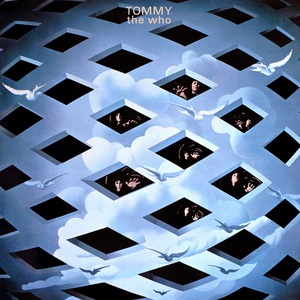
Tommy is the fourth studio album by the English rock band The Who, a double album first released on 17 May 1969. The album was mostly composed by guitarist Pete Townshend, and is a rock opera that tells the story of Tommy Walker. Tommy is traumatized from witnessing his father murder his mother's lover. Tommy's parents compound his trauma by denying the experience. In reaction, Tommy becomes dissociative. Tommy then experiences the trauma of being sexually abused. As a way of coping with his trauma, Tommy dissociates further through playing pinball. He gains a following because of his skill at playing pinball. After numerous misguided attempts to heal Tommy, a doctor prescribes him a mirror so he can confront himself and his experience. Instead, Tommy becomes self-absorbed and comes to think of himself as a messianic figure. When the mirror is eventually broken, Tommy comes out of his dissociative state. Tommy then tries to lead his followers to believe that the only path to healing is through him. His followers eventually reject him and his teachings.

Quadrophenia is the sixth studio album by the English rock band the Who, released as a double album on 26 October 1973 by Track Records. It is the group's third rock opera, the two previous being the "mini-opera" song "A Quick One, While He's Away" and the album Tommy. Set in London and Brighton in 1965, the story follows a young mod named Jimmy and his search for self-worth and importance. Quadrophenia is the only Who album entirely composed by Pete Townshend.
The year 1972 involved some significant events in television. Below is a list of notable television-related events.

Ronald David Wood is an English rock musician, best known as an official member of the Rolling Stones since 1975, as well as a member of Faces and the Jeff Beck Group.

Jann Simon Wenner is an American magazine magnate who is a co-founder of the popular culture magazine Rolling Stone, and former owner of Men's Journal magazine. He participated in the Free Speech Movement while attending the University of California, Berkeley. Wenner, with his mentor Ralph J. Gleason, co-founded Rolling Stone in 1967.
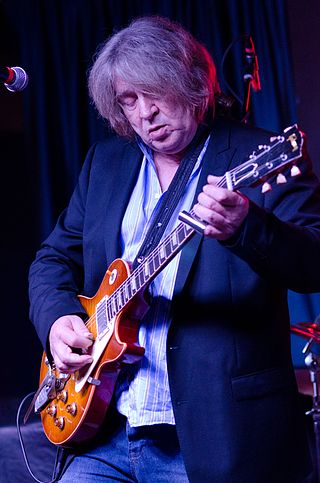
Michael Kevin Taylor is an English guitarist, best known as a former member of John Mayall's Bluesbreakers (1967–1969) and the Rolling Stones (1969–1974). As a member of the Stones, he appeared on: Let It Bleed (1969), Get Yer Ya-Ya's Out! The Rolling Stones in Concert (1970), Sticky Fingers (1971), Exile on Main St. (1972), Goats Head Soup (1973) and It's Only Rock 'n Roll (1974).
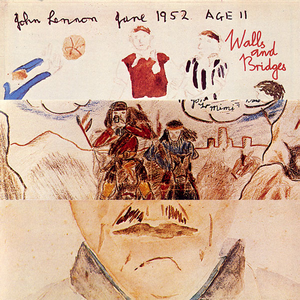
Walls and Bridges is the fifth studio album by English musician John Lennon. It was issued by Apple Records on 26 September 1974 in the United States and on 4 October in the United Kingdom. Written, recorded and released during his 18-month separation from Yoko Ono, the album captured Lennon in the midst of his "Lost Weekend". Walls and Bridges was an American number-one album on both the Billboard and Record World charts and included two hit singles, "Whatever Gets You thru the Night" and "#9 Dream". The first of these was Lennon's first number-one hit in the United States as a solo artist, and his only solo chart-topping single in either the US or Britain during his lifetime.

Steven Lee Cropper, sometimes known as "The Colonel", is an American guitarist, songwriter and record producer. He is the guitarist of the Stax Records house band, Booker T. & the M.G.'s, which backed artists such as Otis Redding, Sam & Dave, Carla Thomas, Rufus Thomas and Johnnie Taylor. He also acted as the producer of many of these records. He was later a member of the Blues Brothers band. Rolling Stone magazine ranked him 36th on its list of the 100 greatest guitarists of all time, while he has won two Grammy Awards from his seven nominations.
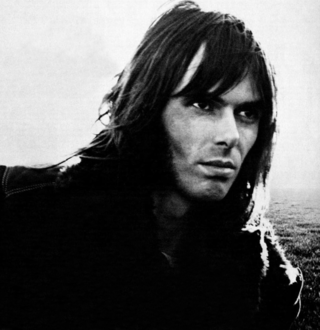
Nicholas Christian Hopkins was an English pianist and organist. Hopkins performed on many popular and enduring British and American rock music recordings from the 1960s to the 1990s, most notably on songs recorded by the Rolling Stones, the Kinks, the Who, the Beatles, the Steve Miller Band, Jefferson Airplane, Rod Stewart, George Harrison, John Lennon, Paul McCartney, Ringo Starr, The Hollies, Cat Stevens, Carly Simon, Harry Nilsson, Joe Walsh, Peter Frampton, Jerry Garcia, Jeff Beck, Joe Cocker, Art Garfunkel, Badfinger, Graham Parker, Gary Moore and Donovan. He is widely considered to be one of the greatest studio pianists in the history of popular rock music.

The Rolling Stones Rock and Roll Circus was a concert film hosted by and featuring the Rolling Stones, filmed on 11–12 December 1968. It was directed by Michael Lindsay-Hogg, who proposed the idea of a "rock and roll circus" to Jagger. The show was filmed on a makeshift circus stage with Jethro Tull, The Who, Taj Mahal, Marianne Faithfull, and the Rolling Stones. John Lennon and his fiancee Yoko Ono performed as part of a one-shot supergroup called The Dirty Mac, featuring Eric Clapton on guitar, Mitch Mitchell on drums, and the Stones' Keith Richards on bass. The recently formed Led Zeppelin had been considered for inclusion, but the idea was rejected.

"Come Together" is a song by the English rock band the Beatles, written by John Lennon and credited to Lennon–McCartney. The song is the opening track on their 1969 album Abbey Road and was also released as a single coupled with "Something". The song reached the top of the charts in the United States and Australia, but peaked at No. 4 in the United Kingdom.
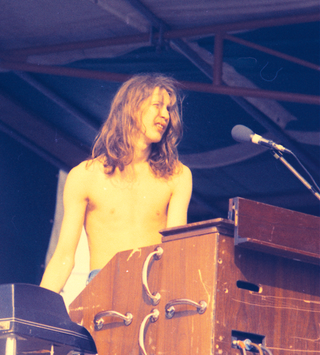
John Douglas "Rabbit" Bundrick is an American keyboardist. He is best known for his work with the rock band The Who and associations with others including Eric Burdon, Bob Marley and the Wailers, Roger Waters, Free and Crawler. Bundrick is noted as the principal musician for the cult film The Rocky Horror Picture Show. In the mid-1970s, he was a member of the short-lived group Mallard, formed by ex-members of Captain Beefheart's Magic Band. He is also known as a composer and has recorded solo albums. He was also a member of the Texas group Blackwell, who had a hit single in 1969 entitled "Wonderful".

The Record Plant is a recording studio established in New York City in 1968 and currently operating in Los Angeles, California. Known for innovations in the recording artists' workspace, it has produced highly influential albums, including Bruce Springsteen's Born To Run, Blondie's Parallel Lines, Metallica's Load and Reload, the Eagles' Hotel California, Fleetwood Mac's Rumours, Eminem's The Marshall Mathers LP, Guns N' Roses' Appetite for Destruction, and Kanye West's The College Dropout. More recent albums with songs recorded at Record Plant include Lady Gaga's ARTPOP, D'Angelo's Black Messiah, Justin Bieber's Purpose, Beyoncé's Lemonade, and Ariana Grande's Thank U, Next.
Sir Michael Edward Lindsay-Hogg, 5th Baronet is an American-born television, film, music video, and theatre director. Beginning his career in British television, Lindsay-Hogg became a pioneer in music film production, directing promotional films for the Beatles and the Rolling Stones. Following his work with these bands, he branched out into film and theatre, while still maintaining successful careers in television and music video production.

Jagger–Richards is the songwriting partnership between English musicians Mick Jagger and Keith Richards, founder members of rock band the Rolling Stones. They are one of the most successful songwriting partnerships in history. In addition to Jagger and Richards' songwriting partnership, they have also produced or co-produced numerous Rolling Stones albums under the pseudonym the Glimmer Twins.

The Kids Are Alright is a 1979 rockumentary film about the English rock band the Who, including live performances, promotional films and interviews from 1964 to 1978. It notably features the band's last performance with long-term drummer Keith Moon, filmed at Shepperton Studios in May 1978, three months before his death.
Ethan Allen Russell is an American photographer, author and video director, mostly of musicians. He is known as "the only rock photographer to have shot album covers for The Beatles, The Rolling Stones and The Who."
















